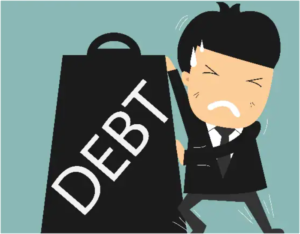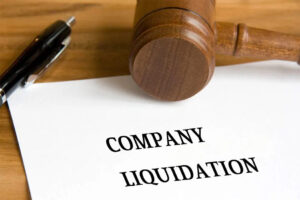When The Company Goes Insolvent, What Can You Do As A Creditor?
As a creditor of a company that cannot pay its debt on time, or it probably has already become insolvent, the biggest question is ‘what can I do to recover my money? This article helps to answer the question of when the company goes insolvent, what can you do as a creditor?
The company is still solvent

As a creditor, you can try to petition to wind the company up to realise the debts owed to you. You can do this through the submission of a winding-up petition in 2 ways:
- Creditor’s winding up: a company can decide to go for a voluntary creditors’ winding up if the company’s director(s) have reasons to believe that the company cannot, by virtue of the liabilities, carry on its operations. When the company’s management has initiated the wind-up process, all the creditors will have the right to go through with the resolution for the process of winding-up and take over control of the process for liquidation.
- Compulsory winding up: the company’s creditors has decided to apply for the business to wind up because the company is insolvent and its management is not willing to wind up the business or the risk of the company dissipating its assets is high.
Initiating a compulsory winding up

To do so, you have to be a creditor (inclusive of a contingent or prospective creditor) of the company. Secondly, you need to establish that the company has no means to repay its debts.
There are normally 3 methods to prove that a company is insolvent:
- The company has failed to repay any sum of more than SGD $10,000 from within three weeks of a statutory demand served to the registered address of the company;
- The judgement execution in favour of you is still unpaid; or
- The company can no longer meet its liability on short notice or its liabilities against its assets is in excess.
The company is insolvent

If the company is already insolvent, you must submit proof of debt to the company. But it is not guaranteed that you will be able to recover the full sum of debt owed to you as there may be many other creditors like yourself who are claiming against the company that is insolvent.
Proof of debt
All debts in insolvent liquidation can be proved against the company that is insolvent. If your debt or claim is not possible to prove, you won’t be able to receive any form of payment.
When the company undergoes liquidation, the liquidator will inform you in writing and broadcast the liquidation in advertisements. You have up to 3 months to file your proof of debt when the order of winding up is made. Current and future debt or contingent debt as at the date of liquidation or any interests due up to the date of liquidation can all be proven. Contingent debt refers to debt that will occur out of an existing legal obligation in an event that may or may not occur.
After that, the liquidator will examine and decide on all the proofs of debt he or she has received and will decide to either accept or reject. The liquidator may also require more evidence regarding these proofs.
In the event your claim has been rejected, you can appeal to the court. When you have failed to produce more evidence to the liquidator’s satisfaction, your claim will be rejected or downsized.
Winding up effects

After the court has made a winding-up order, you are unable to start or continue any legal action against the company. You will need to first obtain permission from the court. The reason is to facilitate an equal and organised manner of distribution of the company’s assets amongst the unsecured creditors.
The court may grant permission to start legal action against the company that is insolvent if:
- To reclaim one’s own property (for example, equipment that is on loan); or
- To exercise remedy over the insolvent company’s property. For example, a landlord creditor seeking to reclaim the property cause of default in rental payment.
Secured creditors are unaffected by this and are allowed to claim any assets that are secured to the debts owing to them.
Recovering debts from a company

A lawyer can advise you on the steps you need to take in order to secure your position as a secured creditor through proper advice, as well as the steps to do as an unsecured creditor.
When the company is insolvent, there is a huge difference between whether an unsecured or secured creditor. A secured creditor has no worry of reclaiming the debt owed to him or her. Even in insolvency, you are not deprived of your interest in the asset.
Prior to getting into a high-risk investment, you can mitigate some insolvency risks involved by talking with a consultant or a lawyer.
If you have any further questions, get in touch with us today!
Download the Telegram app and follow us for the latest updates: https://t.me/sgcompanyservices
